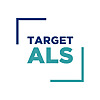
Target ALS
248 FOLLOWERS
Launched in 2013, Target ALS envisions a world in which no one dies from ALS. Read the latest news and stories from Target ALS and their research team. Learn from top doctors, professors, and more. Join us in the fight.
Target ALS
3w ago
Scientists worldwide can access and analyze comprehensive datasets to drive biomarker and therapeutic discovery for the disease
New York, NY – March 28, 2024 – Target ALS, a nonprofit organization that breaks down barriers to accelerate research for Amyotrophic Lateral Sclerosis (ALS), has launched a first-of-its-kind data portal to provide no-strings-attached access to comprehensive datasets and analysis tools to fuel discovery of treatments and biomarkers for ALS.
Through the portal, researchers worldwide can access well-characterized data collections from Target ALS’ Scientific Core Facilit ..read more
Target ALS
1M ago
We are proud to announce that Target ALS has been named an Official Charity Partner for the 2024 TCS New York City Marathon, which takes place on Sunday, November 3, 2024.
Target ALS accelerates research to discover effective treatments for amyotrophic lateral sclerosis (ALS), a neurodegenerative disease. ALS is characterized by progressive and irreversible loss of muscle strength, eventually leading to paralysis and death, typically within 3-5 years of diagnosis.
As an official charity partner, Target ALS will provide guaranteed entry to the marathon to a limited number of runners. If you are ..read more
Target ALS
1M ago
We are thrilled to announce that longitudinal biofluid samples from the ongoing Target ALS Natural History Study are now available for global distribution to scientists advancing ALS research. The Longitudinal Biofluid Consortium was launched in 2021 under the direction of Dr. Robert Bowser, CSO of Barrow Neurological Institute. This natural history study aims to generate and make available the most comprehensive collection of longitudinal biofluids samples and data in ALS to accelerate biomarker and treatment discovery.
Sample Request Process
Samples and corresponding clinical metadata ..read more
Target ALS
2M ago
We are thrilled to announce that longitudinal biofluid samples from the ongoing Target ALS Natural History Study are now available for global distribution to scientists advancing ALS research. The Longitudinal Biofluid Consortium was launched in 2021 under the direction of Dr. Robert Bowser, CSO of Barrow Neurological Institute. This natural history study aims to generate and make available the most comprehensive collection of longitudinal biofluids samples and data in ALS to accelerate biomarker and treatment discovery.
Sample Request Process
Samples and corresponding clinical metadata ..read more
Target ALS
5M ago
In 2013, Target ALS was founded by Dan Doctoroff in response to his personal experience with ALS; both his father and uncle passed away from the disease. Now, ten years later, he is battling his own ALS diagnosis. Target ALS’ mission at its founding was to remove the barriers that were limiting progress toward the development of ALS treatments. At the time, ALS researchers worked in silos, and access to critical research tools was limited.
Target ALS transformed the way ALS research is approached with our landmark “Innovation Ecosystem” model that empowers researchers through collaborat ..read more
Target ALS
9M ago
We are proud to announce that Target ALS has been named an Official Charity Partner for the 2023 TCS New York City Marathon, which takes place on Sunday, November 5.
Target ALS’ mission is to eradicate the tremendous harm of ALS, a neurological disease characterized by progressive and irreversible loss of muscle strength, leading eventually to paralysis and death, typically within 3-5 years of diagnosis.
Through this partnership, Target ALS will provide a limited number of runners with guaranteed entry. If you are not yet registered for the marathon and would like to run in support o ..read more
Target ALS
1y ago
What is Dementia?
Dementia is the persistent disorder of mental processes marked by difficulties with memory, changes in personality, and impaired reasoning. Dementia is not a specific disease, but rather an all-encompassing term for these cognitive impairments.
The cause of dementia varies and it can affect people differently by causing different symptoms. All patients suffering from dementia have experienced some damage to or loss of nerve cells and their connections in the brain.2
What are the Most Prevalent Types of Dementia?
The different types of dementia are determined by the area ..read more
Target ALS
1y ago
For over a decade, histone deacetylase (HDAC) inhibitors have been investigated as anti-cancer agents that play a role in the death or cell cycle arrest of cancer cells. But more recently, researchers have found increasing evidence that HDAC inhibition can alleviate symptoms of ALS. This is particularly the case for histone deacetylase 6 (HDAC6), thereby making it a target for potential gene therapies.
While 90% of ALS cases are sporadic, many of the remaining 10% of familial cases are related in some way to mutations in a handful of specific genes, including:
SOD1
TDP-43
FUS
C9orf72 ..read more
Target ALS
1y ago
While the precise mechanisms that lead to the development of amyotrophic lateral sclerosis (ALS) are still under investigation, several genetic mutations have been linked to the disease and its symptoms. By investigating these mutations, researchers hope to discover therapeutic interventions that can slow down or stop the neurodegenerative effects of ALS.
Recently, researchers have found possible connections between hundreds of genes and ALS. Many of which may provide targets for new treatments.1 But there are a handful of well-researched genes that researchers believe mut ..read more
Target ALS
1y ago
While the precise mechanisms that lead to the development of amyotrophic lateral sclerosis (ALS) are still under investigation, several genetic mutations have been linked to the disease and its symptoms. By investigating these mutations, researchers hope to discover therapeutic interventions that can slow down or stop the neurodegenerative effects of ALS.
Recently, researchers have found possible connections between hundreds of genes and ALS. Many of which may provide targets for new treatments.1 But there are a handful of well-researched genes that researchers believe mu ..read more